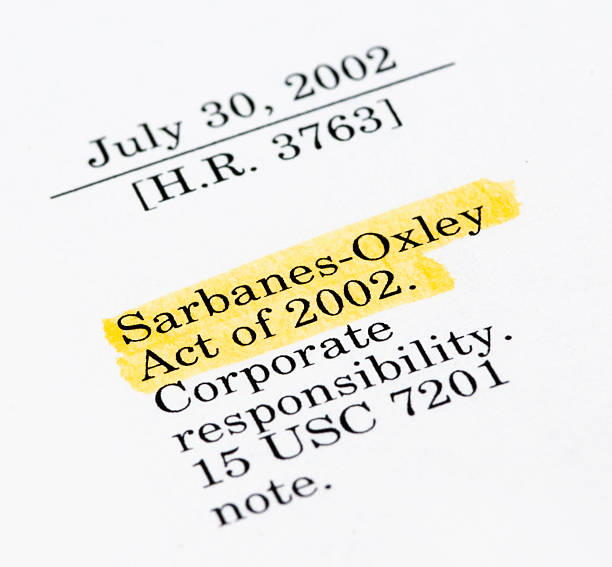A Comprehensive Analysis of the Sarbanes-Oxley Act of 2002
The Sarbanes-Oxley Act of 2002, a significant piece of financial regulation legislation, initiated sweeping changes in the corporate world. This article delves into the historical context, key legal developments, and implications of this act on the business landscape.

Origins and Creation of the Sarbanes-Oxley Act
The Sarbanes-Oxley Act, often referred to as SOX, was born out of a series of corporate accounting scandals that rocked the early 2000s. High-profile companies like Enron, WorldCom, and Tyco were found to have been employing fraudulent accounting practices, leading to investor mistrust and market instability. In response, the U.S. Congress enacted the Sarbanes-Oxley Act in 2002, named after its sponsors, Senator Paul Sarbanes and Representative Michael Oxley.
Key Provisions of the Sarbanes-Oxley Act
The Sarbanes-Oxley Act is comprehensive, with eleven sections that cover various areas of corporate governance. Key among them is the establishment of the Public Company Accounting Oversight Board (PCAOB), responsible for overseeing, regulating, inspecting, and disciplining accounting firms in their roles as auditors of public companies. Other notable sections include increased criminal penalties for securities fraud, expansion of the time period in which investors can claim fraud, and a requirement for companies to have internal controls and report on their effectiveness.
The Sarbanes-Oxley Act in Today’s Corporate Landscape
Since its enactment, the Sarbanes-Oxley Act has had a significant impact on the corporate environment. Companies are held to higher standards of transparency and accountability, with stricter controls over financial reporting. While some critics argue that the act has imposed excessive regulatory burdens, especially on smaller companies, it has undeniably played a crucial role in restoring investor confidence and improving corporate governance.
The Sarbanes-Oxley Act and Its Influence on International Standards
The influence of the Sarbanes-Oxley Act extends beyond U.S. borders. Many countries, recognizing the benefits of enhanced corporate governance, have implemented similar regulations. The act has effectively set a global standard for corporate accountability and transparency, making it a cornerstone of modern financial regulation.
Looking Forward: The Future of the Sarbanes-Oxley Act
As the corporate world continues to evolve, so too will the Sarbanes-Oxley Act. Future amendments may be necessary to keep pace with emerging issues such as digital currencies, cybersecurity, and the increasing prominence of environmental, social, and governance (ESG) factors in corporate reporting. Despite these potential changes, the core principles of the act, promoting transparency, accountability, and integrity in the corporate world, are likely to remain intact.
In conclusion, the Sarbanes-Oxley Act of 2002 was a watershed moment in U.S. corporate governance. Its legacy is still keenly felt today, shaping standards of transparency, accountability, and integrity within the corporate world. Understanding its origins, key provisions, and impact is vital for anyone seeking to navigate the complex landscape of contemporary business law.






